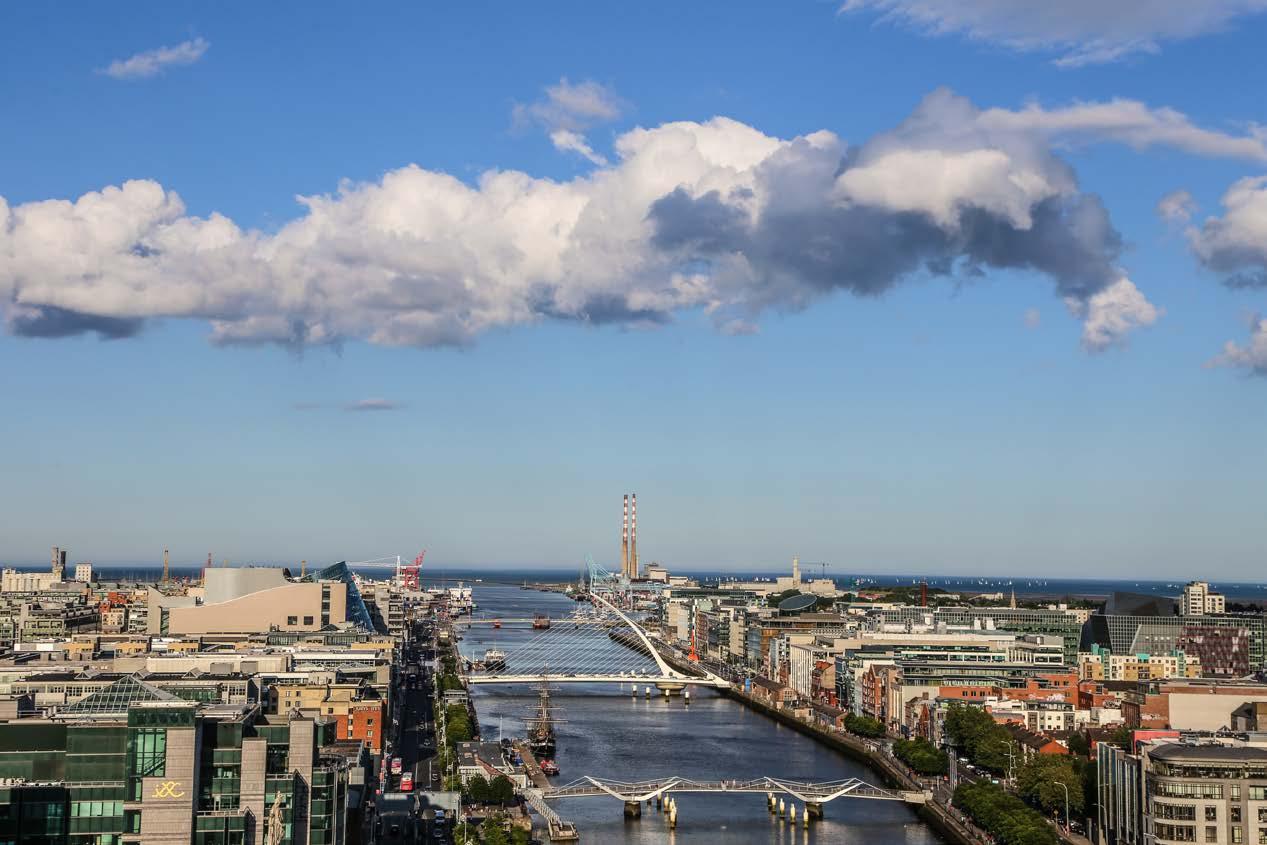
3 minute read
CITY CENTRE what’s hot in Dublin
from Go Wild Dublin
There’s so much to see and do in the heart of the capital and no visitor will ever leave unfulfilled. Well-known attractions such as The Guinness Storehouse have rightly earned their place at the top of the most visited list; but along with St. James Gate, there are some hidden gems to look out for too. Here’s a few of our favourites for you to check out during your stay in Dublin city centre.
The Guinness Storehouse
Advertisement
It takes a lot to become iconic, but Guinness has done it. The “Black Stuff” may be famous the world over but this slow-settling porter started its life in the heart of old Dublin. Back in 1759, an enterprising brewer by the name of Arthur Guinness took out a 9,000-year lease on the brewery here for an annual rent of £45! A couple of centuries later, the Storehouse was born. Built in the style of the Chicago School of Architecture 1904, it was originally used as a fermentation house. Today it’s Ireland’s number one visitor attraction – a gleaming, multimedia exhibition on everything from retro advertising to the craft of brewing, topped off with a pint in the 360-degree Gravity Bar. When you get there, don’t forget to raise your glass to Arthur’s wonderful creation!
St. Patrick’s Cathedral
Ancient, dramatic and intriguing, Dublin’s two cathedrals make a striking pair. Built beside a well where Ireland’s patron saint baptised converts, St Patrick’s dates back to 1220 and is filled with monuments, 19th-century stained glass and a beautiful Lady Chapel.
The book of Kells and Trinity College
With a backstory that includes monks, Vikings and remote Scottish islands, the Book of Kells will make the hairs on the back of your neck stand on end. This glorious Early Christian illuminated manuscript is quite simply a masterpiece. Located within Trinity College’s Treasury, the tour here includes a visit to the Long Room library, one of Europe’s most magnificent libraries housing over 200,000 of Trinity’s oldest books.
The Irish Emigration Museum
Located in the historic vaults of the CHQ Building at Custom House Quay, EPIC The Irish Emigration Museum delves into the past of Ireland’s diaspora in brilliant interactive detail. The state-of-the-art visitor experience explores the inspiring journeys of over 10 million people who left Ireland’s shores throughout history. Fancy learning more about your Irish ancestry? You can access valuable records, speak with a genealogy expert and join the online community of people on a quest to learn about their Irish roots.
Kilmainham Gaol
There’s a real “wow” moment that comes with walking into the East Wing of Kilmainham Gaol. Eerie, vast and deserted, the gaol is the largest unoccupied prison in Europe and holds countless tales within its thick, cold walls. The tour here gives a dramatic insight into the history of this forbidding prison, with its overcrowding, hardship and brutal conditions. A definite don’t miss.
Dublin´s Free Museums
Gaze at one of the largest and most spellbinding gold collections in Europe; come “face to face” with the incredible preserved bodies of Iron Age people; and look in wonder at a 4,500-year-old log boat from County Galway. The National Museum Dublin is just one of the city’s must-visit museums, housed within a lovely Palladian building from 1890.
Dublin´s City Parks
Whether you want to spend the evening watching a retro film in a leafy Georgian square or potter around a lunchtime farmers’ market, Dublin’s parks will fit the bill. Cherished and adored, the city’s green spaces include the hidden oasis of Iveagh Gardens (perfect for afternoon picnics) and the city centre gem of St. Stephen’s Green, which was used for public executions until the 1770s.
Little Museum of Dublin
Tucked away on St Stephen’s Green is the Little Museum of Dublin, an eccentric collection of fascinating items donated by Dubliners themselves. Intricately curated and thoughtfully displayed, the museum is a delightful place to spend an unhurried afternoon, uncovering a more intimate history of Dublin in the 20th century through photography, letters, advertising and art. Music fans will particularly enjoy the second-floor exhibition – U2 Made in Dublin, which starts the story of the city’s most famous rock band from 1976 to the present day.











